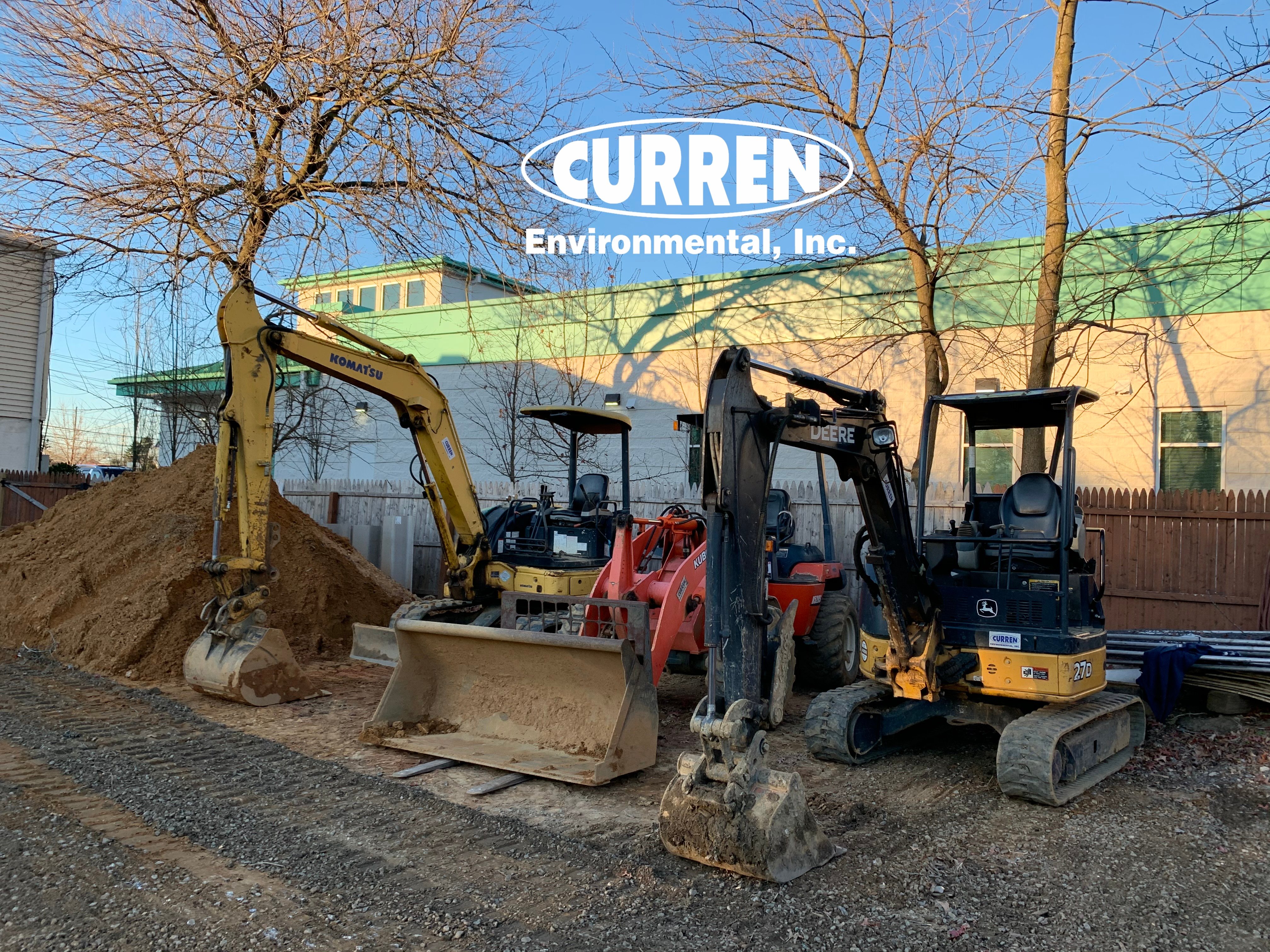ISRA
(Industrial Site Recovery Act) Program NJDEP
ISRA or the Industrial Site Recovery Act replaced ECRA) which was jokingly referred to as the Environmental Consultants Retirement Account (ECRA). This nickname came about because the process on many sites took years and was costly to comply with by Responsible Parties.
If you heard the word ISRA you are likely, buying, selling, ceasing operations or transferring ownership of a business/property that made something and you are or might be subject to ISRA. You can read this whole web page and learn a lot about ISRA or you can call our office for a free initial consultation, we may be able to tell you if you are or are not subject to ISRA. Having your NAICS code helps when you call.
888-301-0150
Pro Tip
The ISRA program has gotten better over the years, but bottom line ISRA is an exhaustive evaluation of a property and most every ISRA will require that testing be performed if only to verify the presumption that no contamination is present. So start early, be prepared for some bad news.
We started with ECRA and own and operate geophysical, drilling and excavation equipment and I can't think of many sites where we didn't need to break ground so to speak to evaluate and test. That new compressor we see on an old property. Well, NJDEP logic is what happened to the old compressor that spit oil? So you test the compressor area to be 100%
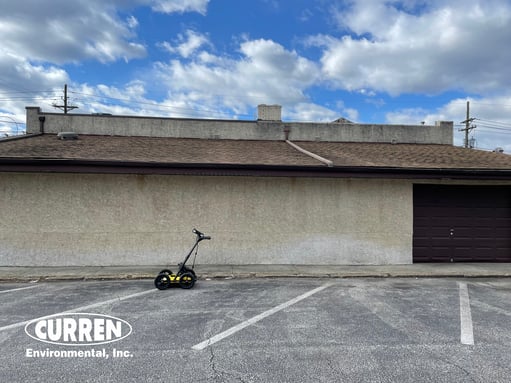
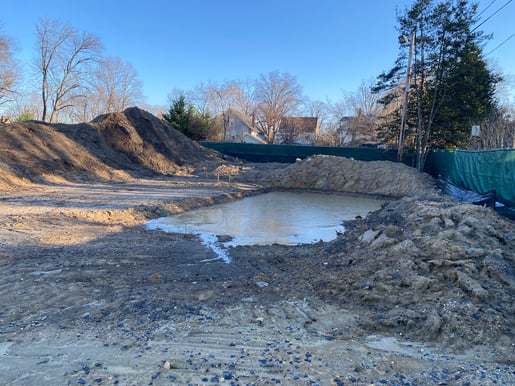
In short ISRA is meant to hold certain businesses (manufacturers of anything typically) accountable for contamination caused to properties. But the law held companies accountable not just for anything they did but whatever else happened on the site, even if it happened prior to their operation at the site.
Many businesses in New Jersey have to comply with ISRA regulations, and this is based on the business classification (NAICS Code). The first step in the ISRA process is hiring a LSRP (Licensed Site Remediation Professional) to perform a Preliminary Assessment or PA. The PA completes an audit of the property and allows the LSRP to assess environmental issues of the property and ultimately provide a RAO (Remedial Action Outcome). An RAO is the end result of the ISRA process.
Introduction to ISRA
The Industrial Site Recovery Act (ISRA) (N.J.S.A. 13:1K and N.J.A.C. 7:26B), is implemented by the New Jersey Department of Environmental Protection (NJDEP). Senate Bill No. 1070 was introduced on July 23, 1992 and represented the Legislature's efforts to reform the process by which contaminated sites are remediated. On July 16, 1993, Senate Bill No. 1070 was signed into law as P.L. 1993, c.139. Sections 1 through 22 of P.L. 1993, c.139, supplement and amend the 1983 Environmental Cleanup Responsibility Act (ECRA), including renaming the law to ISRA. Additional provisions of P.L. 1993, c.139 established the Hazardous Discharge Remediation Act, N.J.S.A. 58:10B-1 et seq. and amended the Spill Compensation and Control Act, N.J.S.A. 58:10-23.11, et seq. The ISRA Regulations (N.J.A.C. 7:26B) were adopted on November 17, 1997.
ISRA imposes certain preconditions on the sale, transfer, or closure of "industrial establishments" involved in the generation, manufacture, refining, transportation, treatment, storage, handling or disposal of hazardous substances or wastes.
Why ISRA?
In 1983, the Legislature found that discharges of toxic chemicals dating back to early industrialization have left a legacy of contaminated industrial property in New Jersey. In response to the growing public awareness and concern of the risks to the public health and the environment and the potential costs to the State to clean up abandoned contaminated sites, the Legislature enacted the "Environmental Cleanup and Responsibility Act" ECRA. The Legislature also found that the act's imposition of a cleanup plan approval before the transfer or upon the closing of an industrial establishment and the requirement to establish a funding source for the cleanup are in the general public interest by ensuring the discovery of contamination, by ensuring that funding for cleanup is set aside at the time it is available from a transfer or closing, and by ensuring that contaminated property is not abandoned to the State for cleanup.
I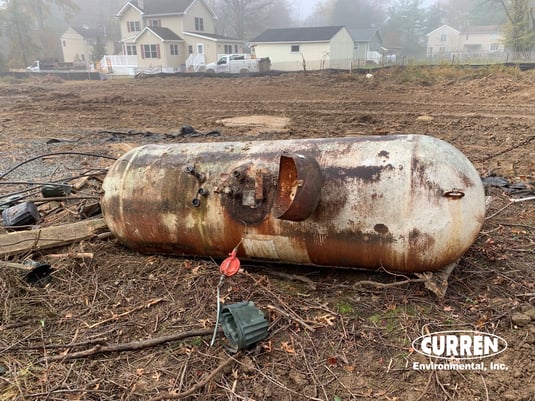
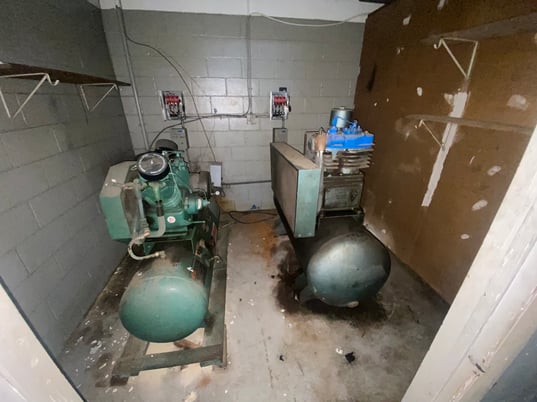
SRA furthers the policy of New Jersey to protect the public health and safety, and the environment by promoting efficient and timely cleanups and by eliminating any unnecessary financial burden on the persons responsible for remediating contaminated sites. This has been achieved by streamlining the regulatory process, by establishing summary administrative procedures for industrial establishments that have previously undergone an environmental review, and by reducing oversight of those industrial establishments where less extensive regulatory review will ensure the same degree of protection to public health, safety, and the environment. The new procedures in ISRA guard against redundancy from the regulatory process and to minimize governmental involvement in certain business transactions.
The primary goal is to ensure that industrial establishments have been remediated to an acceptable condition upon sale, transfer, or closure without jeopardizing the time needed to finalize real estate and business transactions. However, accomplishing this goal not only depends upon the timely responses of the NJDEP, but is also contingent upon the timeliness in which ISRA subject parties submit their administrative and technical data for the NJDEP's review.
The ISRA Process
The ISRA process begins with determining if the Act applies to your type of business and transaction. The provisions of ISRA only apply to industrial establishments.
Pro Tip
A car dealer and a auto mechanic are not subject to ISRA no matter what your lawyer says.
And no you can't get a letter of ISRA non applicability anymore, they haven't been issued for years.
What is an industrial establishment?
The term "industrial establishment" refers to the type of business operations and transactions which would subject a facility to review under ISRA. An industrial establishment must meet each of the following four criteria:
The place of business must have a North American Industry Classification System (NAICS) code that is subject to ISRA. Previously an ISRA applicability was based on the facility Standard Industrial Classification (commonly known as "SIC") code, which the NAICS replaced.
Although this is a very general explanation, if the facility manufactured anything, then you are more likely to be subject to ISRA.
The place of business must have been engaged in operations on or after December 31, 1983; and
The place of business must involve the generation, manufacture, refining, transportation, treatment, storage, handling, or disposal of hazardous, substances or hazardous wastes, i.e., were hazardous substances or hazardous wastes used on the site?
Is the owner of the property or the facility operator planning on closing the operation or transferring ownership or operation of a facility subject to the ISRA regulations?
What triggers ISRA compliance requirements?
ISRA requires owners or operators of an industrial establishment to notify the NJDEP upon the closing of operations or upon the transfer of ownership or operations of the industrial establishment. After the submittal of the notice, an owner or operator of an industrial establishment is required to obtain a “no further action letter” from the NJDEP or NJDEP approval of a remedial action workplan or remediation agreement as a precondition for the closing of operations or transferring of ownership or operations at these facilities.
Who must comply with ISRA?
Both the owner of the real property and operator of the industrial establishment are jointly liable for compliance with ISRA.
How do I determine if I am required to comply with ISRA?
An owner or operator who answers "Yes" to each of the following questions is required to comply with ISRA.
Does the business have a North American Industry Classification System (NAICS) code that is subject to ISRA.
Were operations of an industrial establishment conducted after December 31, 1983?
Were hazardous substances or hazardous wastes used on-site?
Is the owner or operator planning to close operations or transfer ownership or operations of an industrial establishment as defined by ISRA and N.J.A.C. 7:26B?
The NJDEP has established an applicability determination service to help the public make informed decisions concerning ISRA applicability and to provide written determinations regarding ISRA applicability. If you require a written determination an Application for an Applicability Determination and a $200 fee can be submitted to the NJDEP. Please note a written determination from the NJDEP is not required under State regulation or statute, rather is a service the NJDEP provides if requested.
At this point, the applicant should also determine if any of the waivers, exemptions or expedited review processes described below would apply.
What if my facility is subject to ISRA?
If you determine that your facility is subject to ISRA and your facility does not qualify for any of the waivers, exemptions or expedited review processes described below, then you are required to perform all necessary remediation at your facility. During the standard ISRA process, the owners or operators of industrial establishments must complete the following steps:
1. Notify the NJDEP within five days of any triggering event by filing a General Information Notice (GIN). Triggering events are specifically enumerated in ISRA, N.J.S.A. 13:1K-8 and include the sale of business or property, cessation of operations and bankruptcy.
2. The owner or operator must then conduct a remediation in accordance with the Technical Requirements for Site Remediation N.J.A.C. 7:26E, including a Preliminary Assessment (PA) to identify potential Areas of Concern (AOCs).
3. If the PA finds AOCs that warrant investigation, then a Site Investigation (SI) must be performed to determine if any contaminants are present above any applicable remediation standards.
4. If there is contamination documented in the SI Report, the owner or operator must conduct a Remedial Investigation (RI) to determine the nature and extent of contamination. The next step is the proposal of a Remedial Action Workplan (RAW) detailing the measures necessary to remediate contaminated property to the applicable remediation standard. The owner or operator may submit a Negative Declaration certification when there have been no discharges of hazardous substances or wastes on the property or that any such discharges were cleaned up to the satisfaction of the NJDEP. The NJDEP approves the Negative Declaration by issuance of a No Further Action Letter.
In the case of a proposed transfer of ownership, the owner or operator must file either a Negative Declaration or a RAW with the NJDEP prior to the actual transfer. When closing operations, the owner or operator must notify the NJDEP subsequent to closing or of its public release of its decision to close and submit to the NJDEP a Negative Declaration or a RAW. This is all initiated through the filing of the ISRA application forms and/or reports in accordance with the Technical Requirements For Site Remediation, N.J.A.C. 7:26E (General Information Notice, Preliminary Assessment Report forms etc). The execution of a Remediation Agreement between the owner or operator and the NJDEP would, in addition to an approved Negative Declaration or RAW, allow the transaction to be consummated prior to full ISRA compliance. The NJDEP oversees the case until the industrial establishment is satisfactorily remediated, when the NJDEP issues a No Further Action (NFA) Letter.
Common Questions
1. When is an industrial establishment subject to ISRA?
In order to be subject to ISRA, all of the following four conditions must exist:
a. The business must have a North American Industry Classification System (NAICS) code that is subject to ISRA);
b. An applicable transaction (change in ownership or cessation of operation), as specified in ISRA, must exist;
c. Operations of an industrial establishment must have been conducted after December 31, 1983;
d. Hazardous substances or hazardous wastes were on site. For small quantities of hazardous substances, refer to the De minimis Quantity Exemption section of ISRA, N.J.S.A. 13:1K-9.7.
2. What North American Industry Classification System (NAICS) code is subject to ISRA covered by ISRA?
If the facility has a NAICS code listed in the Technical Requirement for Site Remediation NJAC 7:26 B - Appendix C, then the facility is subject to ISRA.
3. What is a Letter of Non-Applicability?
The NJDEP in the past used to draft letters of non-applicability due to the confusion over what sites were applicable to ISRA. At the time, the NJDEP was trying to address the concerns of mortgage bankers, attorneys and purchasers with possible applications of ISRA. The NJDEP has since stopped providing these Letters of Non-Applicability for ISRA as there has been a rising knowledge of the process.
4. If I am in a multi-tenanted building, do I need separate applications or fees for each tenant?
The NJDEP will process this type of application as one application with one fee if the applicant attaches a list of all the tenants, past and present, along with the dates of their tenancy and a description of operations for each tenant and all other required information.
5. Is it necessary for individuals who are subject to ISRA to hire an attorney or environmental consultant such as a Licensed Site Remediation Professional (LSRP) to comply with the law?
That will depend on the complexity of the legal or environmental issues at a particular site. All new ISRA cases require a Licensed Site Remediation Professional (LSRP) to be retained to oversee the work. The LSRP will issue a site RAO (Remedial Action Outcome), as NJDEP No Further Action determinations for new ISRA sites no longer exist.
6. What is a Remediation Agreement?
A Remediation Agreement is a written contract entered into between an owner or operator of an industrial establishment and the NJDEP which allows the ISRA triggering event to proceed prior to the completion of all ISRA requirements. This agreement stipulates who will be responsible for the remediation of the site. The transaction may be consummated upon the execution of a Remediation Agreement by the NJDEP and the person responsible for compliance with the Remediation Agreement and prior to obtaining a No Further Action or Remedial Action Workplan approval.
7. What are the terms of a Remediation Agreement?
There are three general terms of a Remediation Agreement:
-
specific time frames that must be met in completing ISRA requirements.
-
posting of a remediation funding source equal to the estimated cost of remediation.
-
penalties for failure to complete ISRA requirements.
8. When can I apply for a Remediation Agreement?
Applications can be filed at any time during the case but prior to the completion of the standard ISRA administrative process.
9. How are the areas to be investigated under ISRA determined in a multi-tenant leasehold situation?
The area that must be investigated is the real property comprising the leasehold and any other property utilized in connection with the Industrial Establishment, including any storage areas, tanks, septic systems or other units that would be potential Areas of Concern under the Technical Requirements for Site Remediation (N.J.A.C. 7:26E). The property that is determined to be subject to ISRA review must be evaluated for both current and any historic areas of concern regardless of fault. For example, if the area of concern is on the leasehold or ever serviced the leasehold, it would be addressed under ISRA even if the tenant never used the area. However, if an area of concern was never used by the tenant, the area of concern is located off the leasehold portion and there has never been a connection during the tenancy, then the area of concern would not be addressed under ISRA.
10. How does the NJDEP Licensed Site Remediation Professional (LSRP) program involve ISRA?
All newly implemented regulated environmental work in New Jersey must be overseen and reviewed by an NJDEP LSRP. Within 45 days of an ISRA triggering event, the individual or corporation subject to ISRA must retain an LSRP. An ISRA cannot be completed without LSRP involvement. LSRP retention is the new dynamic in New Jersey.
11. What is the New Jersey LSRP Program?
The main objective of the New Jersey LSRP Program will allow the NJDEP to focus its resources on the more complicated remediation sites thus permitting responsible parties to move the remediation process along without extensive NJDEP review and comments. The LSRP has the experience, education and qualifications to act as the enforcement arm of the NJDEP and is allowed to move remediation project forward without NJDEP pre-approval. The LSRP ensures that sites are investigated and remediated in accordance with the NJDEP Technical Requirements for Site Remediation.
The LSRP will issue Response Action Outcomes “RAOs” for sites where the remediation has been completed. The RAOs take the place of the NJDEP No Further Action Letters.
LSRPs are overseen by a board of 13 members and approximately 10% of LSRP cases that are closed with an RAO will be reviewed or audited for compliance to the Technical Requirements and to confirm that the site remediation approach is protective of human health and the environment. The NJDEP will still act as the final approval authority through the auditing process.
The LSRP is charged with the responsibility of reporting any issue deemed an Immediate Environmental Concern (IEC) on any site the LSRP is involved with including due diligence assessments.
Responsible parties, under the SRRA program, remain responsible for regulatory compliance issues and are held to mandatory time frames. If a deadline is missed, the Responsible Party may be forced into the Direct Oversight Program where the NJDEP becomes the primary oversight on the case. This also opens up the Responsible Party to possible enforcement actions. Other issues which will require NJDEP Direct Oversight would include chromate contaminated wastes, environmentally sensitive areas where natural resource damages have occurred, some contaminated sediment sites and sites which have been ranked as a priority based on exposure of human health and the environment.
Curren Environmental, Inc. is a professional environmental consulting and contracting company that provides turnkey environmental solutions for a broad spectrum of environmental issues. Our philosophy of hands-on management of environmentally sensitive issues has helped establish Curren Environmental as a recognized and trusted name among our clients and, as a results-oriented company, capable of problem solving the most difficult cases. We provide the experience and reputation needed to navigate the maze of environmental regulations. The company is composed of a variety of skilled professionals with expertise ranging from engineering to environmental management.
If we can be of assistance or you have any questions, please contact our office at
ISRA Experts
888-301-1050
Are Auto Repair Shops subject to ISRA?
No auto repair, auto sales, car dealerships and repair shops do not fall under ISRA regulations. It is a common misconception that auto repair is an ISRA regulated industry, perhaps because you are generating waste liquids and at one time in the past waste oil had a hazardous classification in New Jersey.
Now a facility that performed auto repair and now operates as an ISRA applicable business, can hold environmental liability for the ISRA applicable business. You see operations of auto repair can have an environmental impact. In ground lifts, ASTs, USTs, slop sinks, parts washing stations with solvents, floor drains, waste oil, etc. all are AOCs (Areas of Concern) for auto repair shops. The USTs are generally covered under their regulations. The other AOCs are things to be looked into for an ISRA evaluation. NO matter what the current ISRA applicable business, the ISRA will evaluate for historical use of the property, which is taken under consideration when evaluating for AOCs. So, a solvent parts washing station used 30 years ago may end up being investigated under an ISRA.
What Fees are subject to the ISA Process?
The NJDEP charges their fees based on categories and the categories are based on the number of Contaminated Areas of Concern (CAOCs) identified on the site needing remediation and impacted media (see below). A fee of $925 is category 1. The $1850.00 is category 2 which is the NJDEP default value. The default value has changed over the years, in short, the fee goes higher. Curren fee schedules are listed below.
Annual Remediation Fees Effective July 1, 2023
Citation Fee Citation Summary
N.J.A.C. 7:26C- 4.3(a)2i $925 Category 1: 0-1 CAOC
N.J.A.C. 7:26C- 4.3(a)2ii $1,850 Category 2: 2-10 CAOC
N.J.A.C. 7:26C- 4.3(a)2iii $10,175 Category 3: 11-20 CAOC
N.J.A.C. 7:26C- 4.3(a)2iv $20,350 Category 4: >20 CAOC
N.J.A.C. 7:26C- 4.3(a)2 $1,570 Media – Ground Water
N.J.A.C. 7:26C- 4.3(a)2 $1,570 Media – Sediment
N.J.A.C. 7:26C- 4.3(a)2 $1,570 Media – Contaminated Ground Water Migrating into Surface Water
Can NJDEP charge ISRA Fees on an ISRA site where the ISRA did not start when required?
Meaning we stopped an ISRA applicable business 10 years ago and then rented the property to a non-ISRA applicable business. I am now selling the property and a Phase I turned up the possibility my former operations were subject to ISRA, and I am in violation of ISRA regulations.
This property is required to start the ISRA process and the NJDEP will bill you for fees going back 10 years when the ISRA should have started. Curren has seen this happen on multiple sites.
ISRA Experts
888-301-1050
